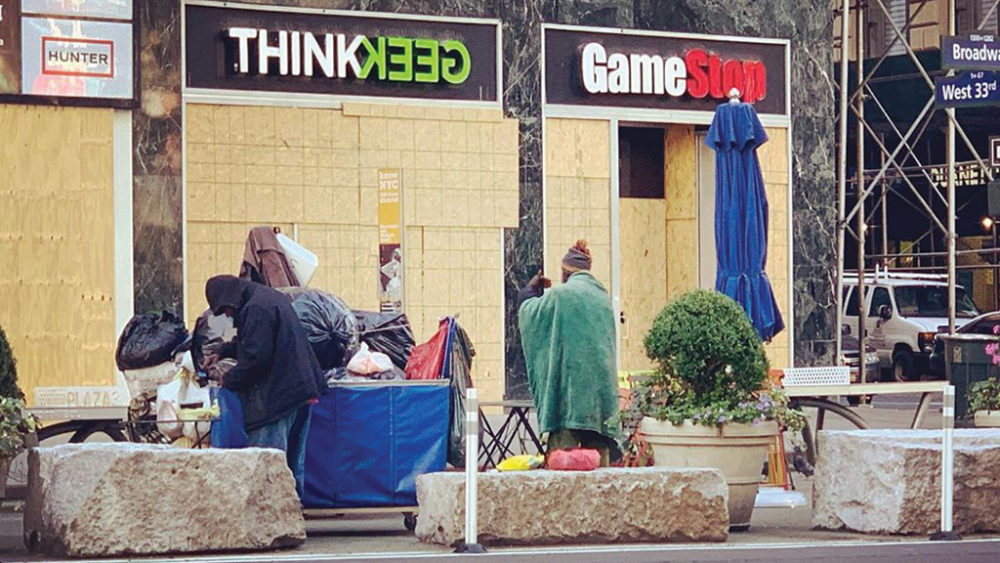
If you’re a time traveler who happens to be visiting 2020, or perhaps a vampire who’s just now awakening from a lengthy slumber, here’s your spoiler alert: Everything is canceled. For those of us who have lived through the last seven or eight months in real time, it’s been an interesting year, with mileage varying greatly depending on personal circumstances, such as remaining employed.
Take some elements from your favorite disaster movie (wildfires, floods, earthquakes); sprinkle in some horror of the Biblical variety (locust swarms, murder hornets); add a dash of that chaos usually seen by most only while playing Call of Duty (drone strikes, assassinations, international animosity not seen since the Cold War), the biggest era of political unrest in the U.S. in decades, and a sweeping change regarding race and inclusion, protests, riots, and looting; and then tie it all up with a nice big global pandemic that shut down countless businesses and created a recession accompanied by record unemployment numbers.
2020 has been a year, and we’re just a little more than halfway through it.
While it may seem far from important in the grand scheme of life, the cancellation of live events paired with disruptions in retail and the supply chain have delivered a crushing blow to the fandom economy.
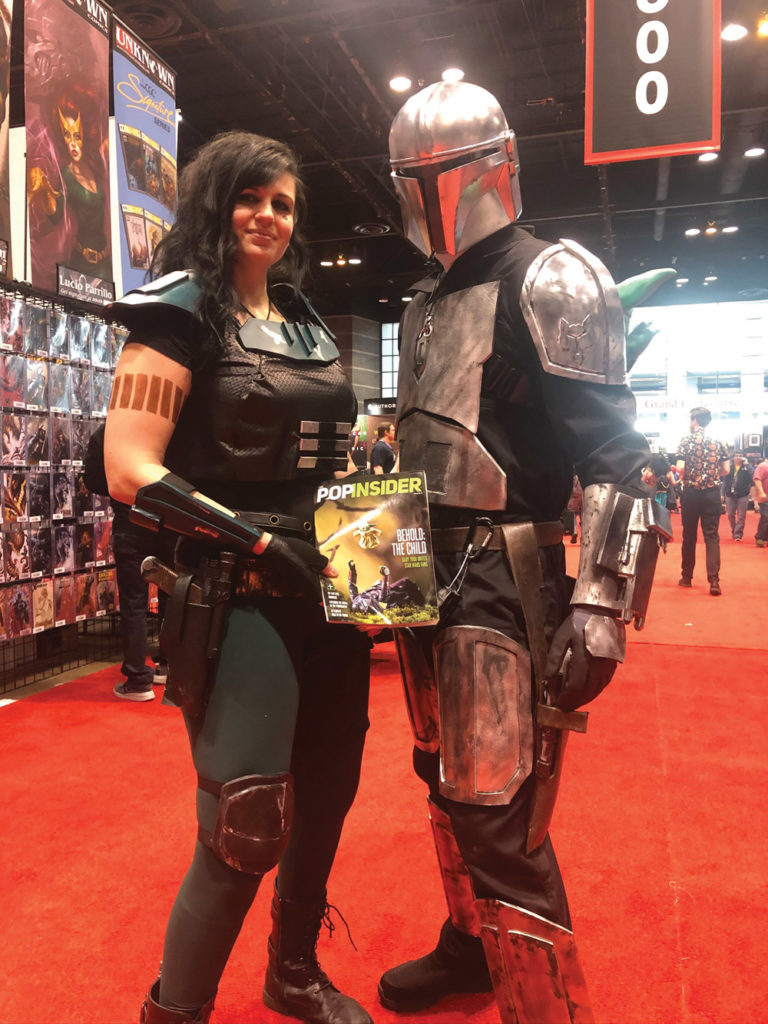
A Swift Collapse
Almost immediately following the completion of ReedPOP’s C2E2 in Chicago, the spread of the COVID-19 pandemic led to the biggest events of the year, including E3, Licensing Expo, Comic-Con International: San Diego (SDCC), Star Wars Celebration, Wizard World, Ace Comic Con, and more, simply vaporizing — at least in a traditional sense. Emerald City Comic Con in Seattle was the first major event to fall, and its quickly thrown-together online replacement would be the first taste of a growing “virtual” event space that continues to evolve and take shape.
For many companies, the swift closure of nonessential retail was enough to cause major problems, but for those that have been largely tethered to the live event space, the potential for a swift and massive collapse would loom.
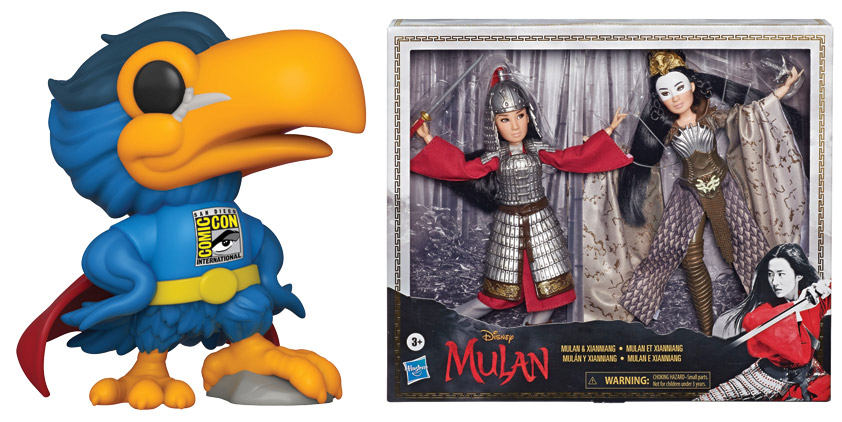
Washington-based Funko entered the year on a high note with sales of its Pop! Vinyl version of The Child (aka Baby Yoda) breaking records before the collectible figures could even hit stores. Just two months after debuting a robust lineup of new toys, games, collectibles, and apparel items at Toy Fair New York in February, the company furloughed “a significant portion” of its staff, while CEO Brian Mariotti began cautioning investors that a 60% sales decline in the second quarter was likely. By June, 25% of Funko’s staff was permanently let go.
While the hits for Funko — and the rest of the collectibles industry — might be far from over, Mariotti believes that the company can come back swinging next year and pick up right where it left off. This, he says, is due largely to some diversification in the company’s product mix that will soon hit the market.
“We’ve proven in 16 years that we can handle tough times,” Mariotti stated on a recent call with investors and industry analysts. “It took a global pandemic for Funko not to grow.”
Wounds at Retail
If the news on the manufacturing side wasn’t tough by itself, the challenges at retail have been absolutely crushing for some. While brick-and-mortar retail was the hardest hit (the majors including Walmart and Target saw increases with competition closed), even online retailers have sputtered, and many are staying mum as to just how bad the hits have been.
Local comic shops were hit hard with no new releases for weeks, leading to a shift in long-term distribution plans. DC Comics ended its nearly 30-year deal with Diamond Comic Distributors, just as Diamond and its sister company, Alliance Game Distributors, ramped up a “Back the Comeback” campaign in hopes of raising money for some of the stores that were closed for months.
And the damage was perhaps even more profound for retailers that cater to niche hobbies and vintage interests. The Nacelle Co.’s A Toy Store Near You docuseries debuted its first season on Amazon Prime and YouTube in June, with the intention of highlighting — and potentially giving back to — more than 50 independent toy and collectibles retailers.
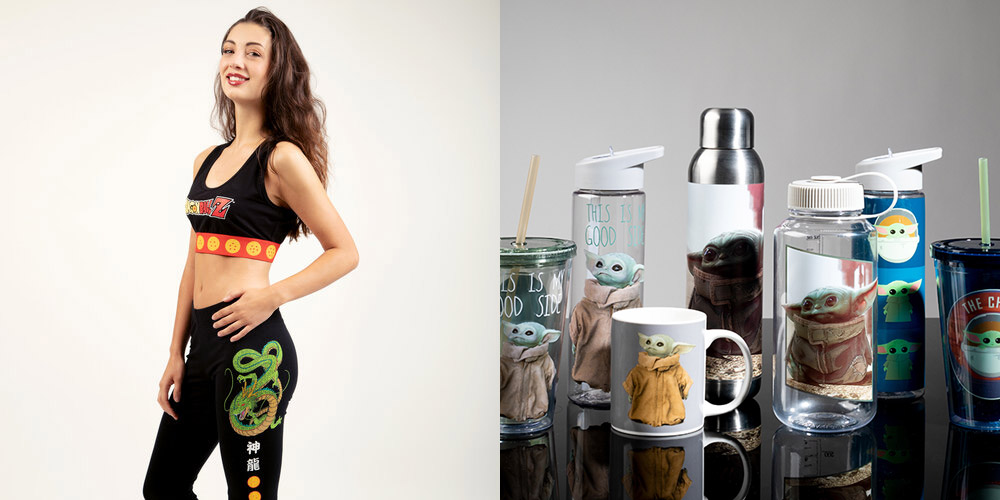
Altering the Deals
Low sales across the board have led to issues with licensing agreements as some manufacturers and sellers have been unable to make their regularly scheduled payments to licensors, due in part to products hitting retail tied to movies that have been delayed. This has even forced some companies to give up licenses, though none have been willing to go on record just yet. The rapid change is starting new conversations among several parties.
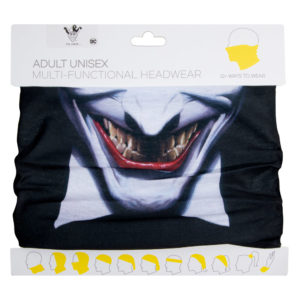
“This is a chance to look at contract language,” says Jennifer Staley, vice president, licensing at Bioworld Merchandising. “It’s an opportunity to change the business and modernize it.”
Bioworld, which creates more than 25,000 styles of licensed merch across more than 20 categories for more than 2,000 accounts, made a quick shift to remote work and direct-to-fan sales.
“Fans need engagement now more than ever,” says Beth Taylor, director, acquisitions and business development at Bioworld. “[We keep] 6,000 styles in stock, which is why we’ve been able to stay busy and supply our fans. We miss them.”
As part of its business, Bioworld had been developing convention booth space for its partners. Now, it’s exploring the options of participating in virtual conventions.
“We’re constantly engaging with the fan base and partnering with the companies that host cons to figure out how to pivot and continue the engagement,” Taylor says.
Unexpected Wins
While the event space and certain areas of retail have suffered in recent months, the toy industry as a whole has seen some increases, and the notable boom in sales of games and puzzles has been a win. It is entirely possible that some categories may never again see the percentage increases that they’ve experienced as families were forced to stay at home or adapt to being “together apart.” According to The NPD Group (NPD), games and puzzles increased an unheard of 228% toward the end of March, and the momentum continued and spread into other categories, including a 107% boom in skate/skateboards/scooters in April, and construction sets and vehicles also charting big increases in the first quarter of the year.
“Strangely enough, we have benefited — sadly, perhaps — through this storm,” says Pete Fenlon, CEO of Catan Studio, developer and publisher of the popular Catan games. “Our Catan game is selling as well or better than ever … we’re having trouble keeping them in stock. Folks need a good value for their buck during these troubled times. They need awesome entertainment!”
One big reason that Catan Studio has been so successful is because its games are produced for the U.S. at a facility in Indiana. While most of the game components are sourced domestically, the company already had reserves of the few components that come from Europe.
Similarly, companies including Buffalo Games, MasterPieces Puzzles, Ravensburger, and Goliath Games reported major sales increases across the board. Following a two-month closure of its manufacturing facility in Buffalo, New York, Buffalo Games was just starting to meet demand again by early July.
For Catan, the stoppage of live events meant shifting its 25th-anniversary celebration and the related event activations into next year.
Meanwhile, the video game industry has seen unprecedented sales increases thanks to digital software downloads. According to the Q1 2020 Games Market Dynamics: U.S. report from NPD, overall consumer spending on video gaming in the U.S. spiked 9% over last year, reaching a record $10.86 billion in sales.
The majority of sales — $9.58 billion — came from video game content, much of which was delivered direct-to-consumer via digital storefronts. That number alone has prompted some to question whether or not physical stores, such as GameStop, will come to an accelerated end.
Restoring Health
If anything, the entertainment industry tends to bounce back from adversity, and if we’re calling 2020 a wash, next year could see a return to some sense of normalcy. Fans are already craving the in-person connection that live events bring. A backlog of potential blockbusters is stacking up for whenever audiences feel that it’s safe to start packing the multiplexes again. And, while many companies will come through the chaos as smaller, more focused enterprises, there will be plenty of content creators looking forward to engaging with an enthusiastic public once more.
There are many questions yet to be answered as to how and when things will be able to start coming back safely.
In the July issue of the National Retail Federation’s (NRF) Monthly Economic Review, the timeline of rebound from the pandemic recession was put into question: “Before we prematurely celebrate the return of the consumer, the wave of new coronavirus outbreaks spreading throughout the country are a major threat to the recovery,” says NRF Chief Economist Jack Kleinhenz. “These outbreaks are alarming, and if they accelerate will certainly sway consumer and business confidence, taking a toll on output and employment and prolonging the time it takes to achieve a true economic recovery.”
Right now, it feels like we’re all a bit like the Avengers near the third act of Endgame. There are cuts and bruises, and we’ve lost some friends along the way, but Iron Man is about ready to snap the gauntlet, and the world will come storming back into action. It will be a little different, yes, but we will be ready to charge forward to fight the battle for another day.
This article was originally published in Issue No. 7 of the Pop Insider. Click here to read the full issue!
